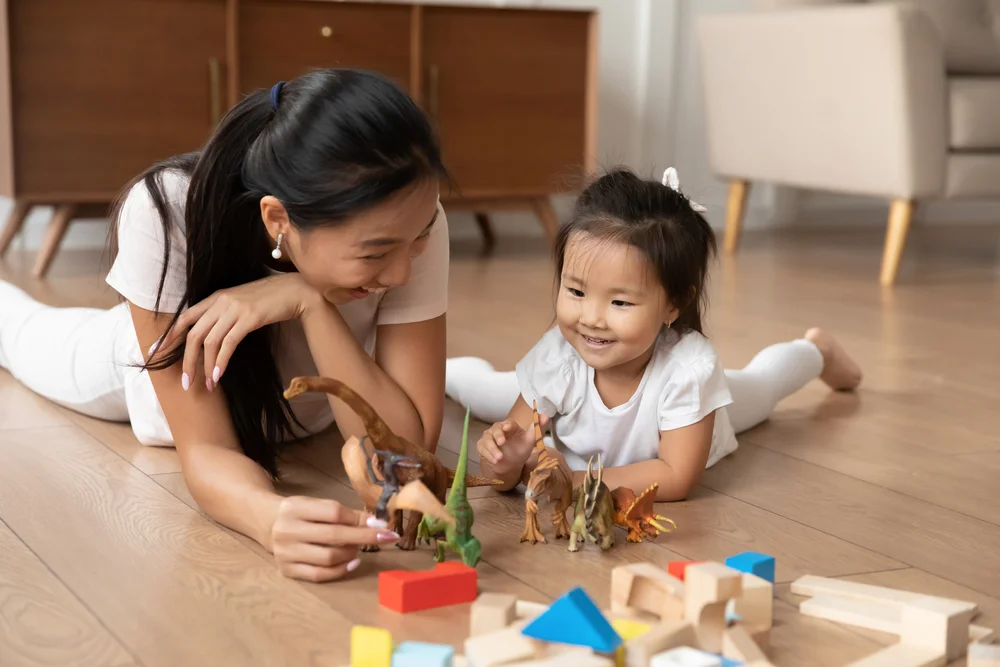Cultivate deep parent-child connections through mindfulness practices. Discover mindful techniques to strengthen bonds, promote trust, and create lasting memories within your family.
Table of Contents
Building Strong Parent-Child Connections through Mindfulness
Building strong parent-child connections through mindfulness is a powerful way to foster a deep and meaningful relationship. Mindfulness, the practice of being fully present and aware in the moment, can help parents and children develop a stronger bond, improve communication, and create a nurturing environment for emotional growth. By incorporating mindfulness into daily interactions and activities, parents can cultivate a more harmonious and connected relationship with their children.
1. Mindful Communication:
Effective communication is essential for building strong parent-child connections. Mindful communication involves being fully present and attentive when engaging with your child. This means actively listening to their thoughts and feelings without judgment or distraction. By practicing mindful communication, parents can create a safe and open space for their children to express themselves, fostering trust and understanding in the relationship.
2. Emotion Regulation:
Mindfulness can help parents and children regulate their emotions and respond to challenging situations with greater calmness and clarity. By teaching children mindfulness techniques such as deep breathing or simple meditation, parents can help them manage stress, anxiety, and anger more effectively. Additionally, parents can model mindful emotional regulation by staying composed and empathetic during difficult moments, showing children how to navigate their emotions in a healthy way.
3. Quality Time:
Spending quality time together is crucial for building a strong parent-child connection. Mindful activities such as going for nature walks, practicing yoga, or engaging in creative arts and crafts can deepen the bond between parents and children. By immersing themselves in these activities without distractions, parents and children can share meaningful experiences that strengthen their connection and create lasting memories.
4. Mindful Discipline:
Discipline is an important aspect of parenting, and mindfulness can play a vital role in this area. Instead of reacting impulsively to misbehavior, parents can approach discipline with mindfulness by taking a moment to pause, reflect, and respond calmly. By using positive reinforcement, setting clear boundaries, and communicating with empathy, parents can instill discipline in a mindful and respectful manner, nurturing a sense of trust and cooperation in the parent-child relationship.
5. Mindful Parenting Practices:
Mindful parenting involves being aware of one’s own thoughts, emotions, and reactions in relation to parenting. By practicing self-awareness and self-care, parents can become more attuned to their own needs and well-being, which in turn positively impacts their ability to connect with their children. Mindful parenting practices such as self-compassion, gratitude, and acceptance can create a nurturing environment that supports the parent-child connection.
6. Mindful Reflection:
Taking time for mindful reflection as a family can be a powerful way to strengthen the parent-child connection. Engaging in reflective conversations where each family member shares their thoughts and feelings in a non-judgmental space can promote understanding and empathy. Reflecting on shared experiences and expressing gratitude for one another can deepen the bond between parents and children.
Mindful Techniques for Deeper Family Bonds:
Strengthening Bonds:
- Shared Mindfulness Practice: Set aside time for family meditation or breathwork exercises. Practice focusing on the present moment together, building awareness of each other’s presence and emotional states.
- Gratitude Rituals: Regularly express thankfulness for each other. Create a gratitude jar where each family member writes down what they appreciate about others. Share these aloud before meals or at bedtime.
- Family Projects: Engage in collaborative activities like arts and crafts, gardening, or volunteering. Working together towards a shared goal fosters cooperation, communication, and strengthens the sense of togetherness.
- Active Listening: During conversations, pay full attention to each other without distractions. Practice mirroring, repeating back key points to ensure understanding and validate feelings.
- Quality Time: Dedicate uninterrupted time for each family member individually. Plan one-on-one activities, games, or simply chats to deepen individual connections and understand each other’s needs.
Promoting Trust:
- Honest Communication: Encourage open and honest communication, setting up a safe space for difficult conversations. Practice non-judgmental listening and acknowledge each other’s feelings without blame.
- Promises Kept: Ensure reliability by meeting commitments and fulfilling promises made to each other. This builds trust and teaches accountability.
- Sharing Vulnerability: Show your true selves to each other by revealing vulnerabilities and insecurities. This fosters deeper connection and encourages empathy and understanding.
- Celebrating Mistakes: Embrace mistakes as learning opportunities. Help each other learn from challenges without judgment or harsh criticism. This promotes a supportive environment and helps build confidence.
- Forgiveness Rituals: Develop mechanisms for acknowledging and forgiving when mistakes happen. This could involve expressing remorse, offering amends, and committing to positive change.
Creating Lasting Memories:
- Mindful Traditions: Create unique family traditions that celebrate special occasions or simply mark life’s milestones. These rituals will be woven into family history and become cherished memories.
- Capture the Moment: Regularly take photos and videos of your family spending time together. These visual reminders will help you relive special moments and cherish the ever-changing dynamics of your family.
- Storytelling: Share family stories and reminisce about past experiences. Encourage children to ask questions and keep the past alive through storytelling. This strengthens a sense of belonging and identity.
- Gratitude Scavenger Hunt: Go on a “gratitude scavenger hunt,” where each family member finds things they appreciate about each other and the shared experience. This creates a fun activity while fostering mindful appreciation.
- Time Capsule for the Future: Create a time capsule together, filled with objects, letters, and drawings that represent your current lives. Bury it or store it away to be opened years later, creating a future memory to anticipate.
These are just a few ideas to get you started. Remember, the most important aspect is to be present, engaged, and intentional in your interactions with your family. By incorporating mindfulness into your family life, you can deepen bonds, build trust, and create lasting memories that will strengthen your family through the years.
Conclusion
In conclusion, building strong parent-child connections through mindfulness requires intentionality, patience, and compassion. By incorporating mindful practices into daily interactions and parenting approaches, parents can create a nurturing environment that fosters a deep and meaningful relationship with their children. Mindfulness not only benefits the individual well-being of both parents and children but also strengthens the bond that they share, laying the foundation for a lifetime of love, trust, and connection.






